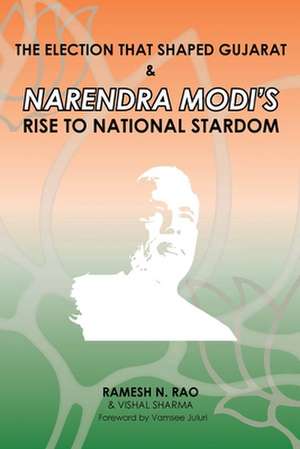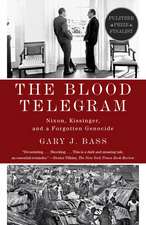The Election That Shaped Gujarat & Narendra Modi's Rise to National Stardom
en Limba Engleză Paperback
Preț: 95.16 lei
Nou
Puncte Express: 143
Preț estimativ în valută:
18.21€ • 18.94$ • 15.03£
18.21€ • 18.94$ • 15.03£
Disponibil
Livrare economică 24 martie-07 aprilie
Preluare comenzi: 021 569.72.76
Specificații
ISBN-13: 9780968412015
ISBN-10: 0968412017
Pagini: 314
Dimensiuni: 152 x 229 x 18 mm
Greutate: 0.46 kg
Editura: Mount Meru Publishing
ISBN-10: 0968412017
Pagini: 314
Dimensiuni: 152 x 229 x 18 mm
Greutate: 0.46 kg
Editura: Mount Meru Publishing
Notă biografică
Ramesh N. Rao is a Professor of Communication at Columbus State University, Columbus, Georgia, in the United States. Ramesh Rao has a Ph.D. in Communication from Michigan State University. He has taught a variety of communication courses since 1987 including public speaking, intercultural communication, mediation, conflict resolution, mass communication, and persuasion. He has co-authored the book, Intercultural Communication: The Indian Context with Avinash Thombre, published in 2015 by Sage (India). Ramesh Rao is also the author of Secular 'Gods' Blame Hindu 'Demons': The Sangh Parivar through the Mirror of Distortion and Coalition Conundrum: The BJP's Trials, Tribulations and Triumphs, both published in 2001. He has edited a book with Koenraad Elst titled Gujarat after Godhra: Real Violence, Selective Outrage (2002). Ramesh Rao has written op-eds for India Abroad, and his essays and commentaries have appeared in the St. Louis Post-Dispatch, Rediff on the Net, India Post, India Currents, Columbia Daily Tribune, The Washington Post, The Guardian (London), and on a variety of Internet portals, including Sulekha.Com.








